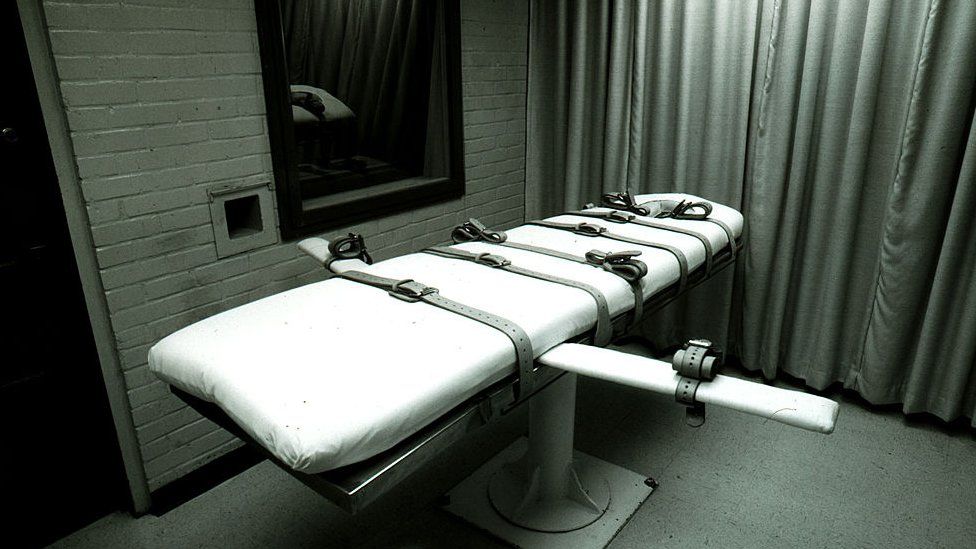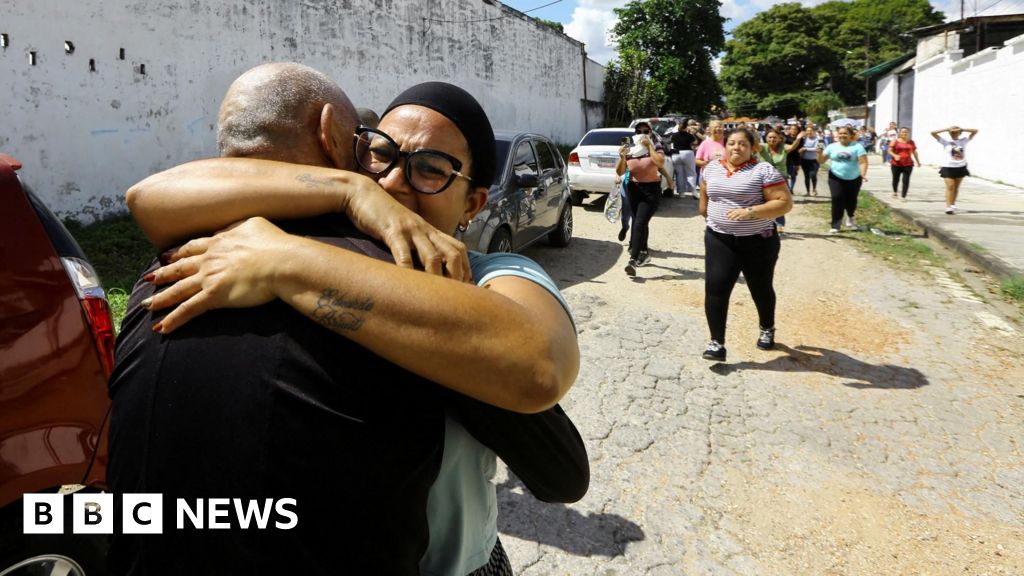ARTICLE AD BOX
 Image source, Getty Images
Image source, Getty Images
Only six US states carried out executions in 2022
By Bernd Debusmann Jr
BBC News, Washington
More than a third of executions in the US this year were botched or highly problematic, according to a new report.
In its annual review, the Death Penalty Information Center (DPIC) said seven of 20 execution attempts were visibly problematic or took an inordinate amount of time.
It added that executions in Alabama, Arizona and Texas were delayed for hours or cancelled altogether.
A total of 18 people were executed in six states throughout the year.
That is one of the lowest figures in recent years. "All the indicators point to the continuing decline in capital punishment," Robert Dunham, executive director of the DPIC, said.
The report from the non-profit, which takes no position on capital punishment, said the executions were visibly problematic because of incompetence, failures to follow protocol or defects in the protocols themselves.
In one incident in July, executioners in Alabama took three hours to set an IV line for an execution - the longest lethal injection in US history.
In four states - Idaho, Ohio, Tennessee and South Carolina - executions had to be put on hold after officials were not able to carry out execution protocols.
"After 40 years, the states have proven themselves unable to carry out lethal injections without the risk that it will be botched," Mr Dunham said. "The families of victims and prisoners, other execution witnesses and corrections personnel should not be subjected to the trauma of an execution gone bad."
The DPIC report shows that the death penalty continues to be geographically isolated in the US, with only six states carrying out executions. Of these, two - Texas and Oklahoma - accounted for more than half of executions.
Its statistics also show a racial disparity in US death penalty cases, with eight of 18 people executed being people of colour. Five were black, one was Asian, one was Native American and one was Latino.
A total of 27 US states still have the death penalty on the books, including three - California, Oregon and Pennsylvania - which have called for a moratorium on executions.
In a statement, she said she was not acting because these prisoners had been rehabilitated, but because the death penalty is "immoral".

 1 year ago
28
1 year ago
28








 English (US)
English (US)